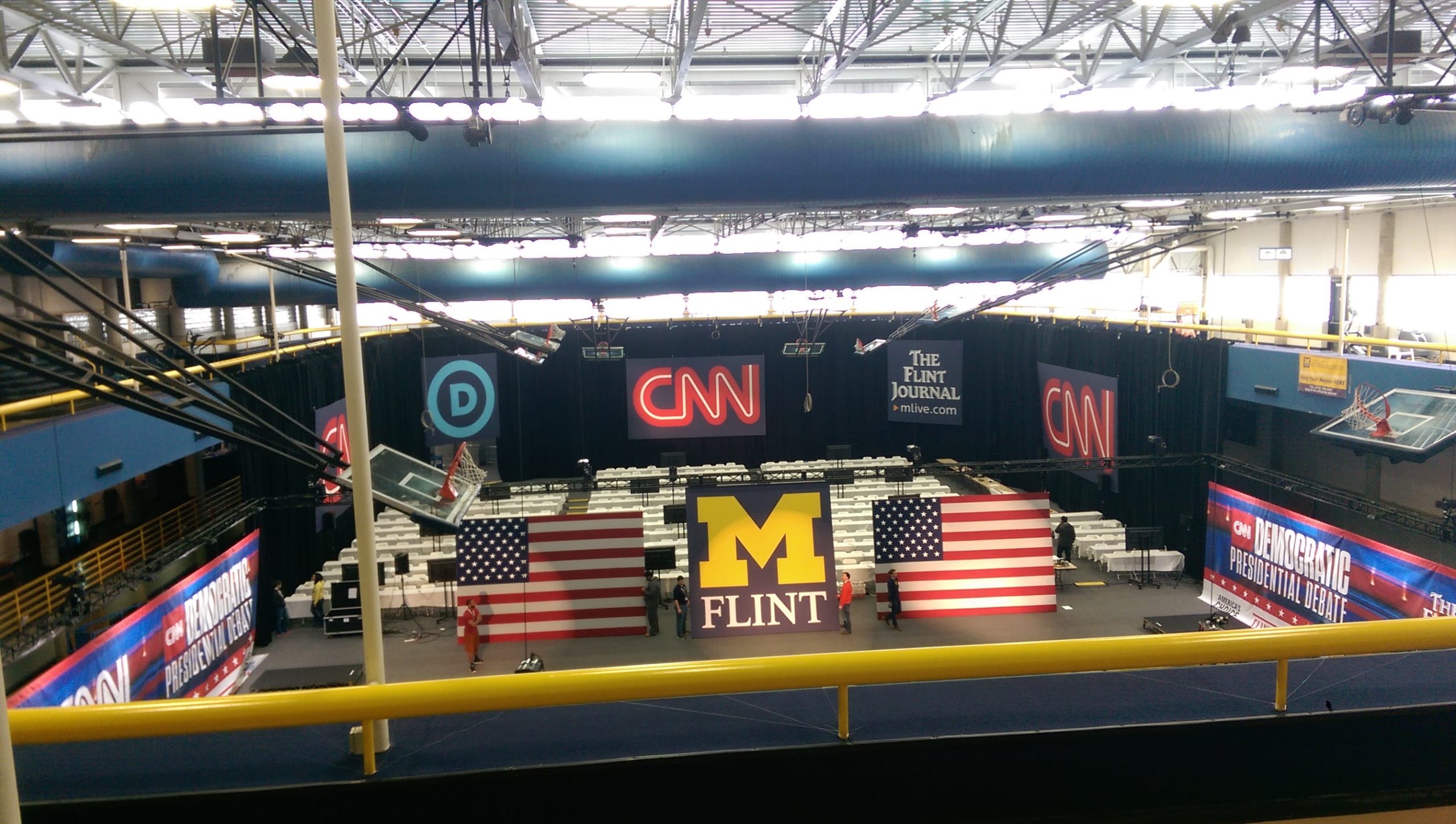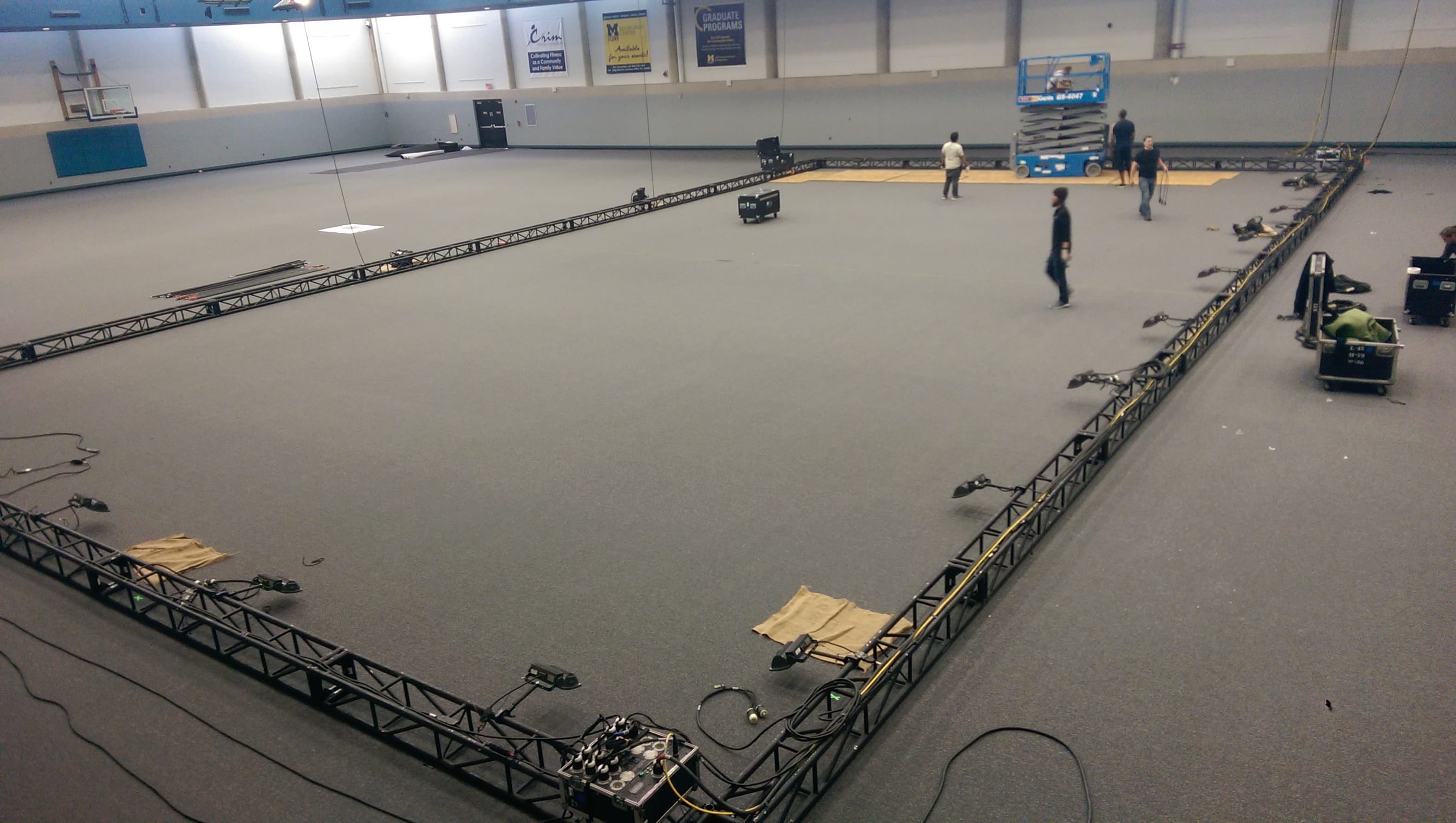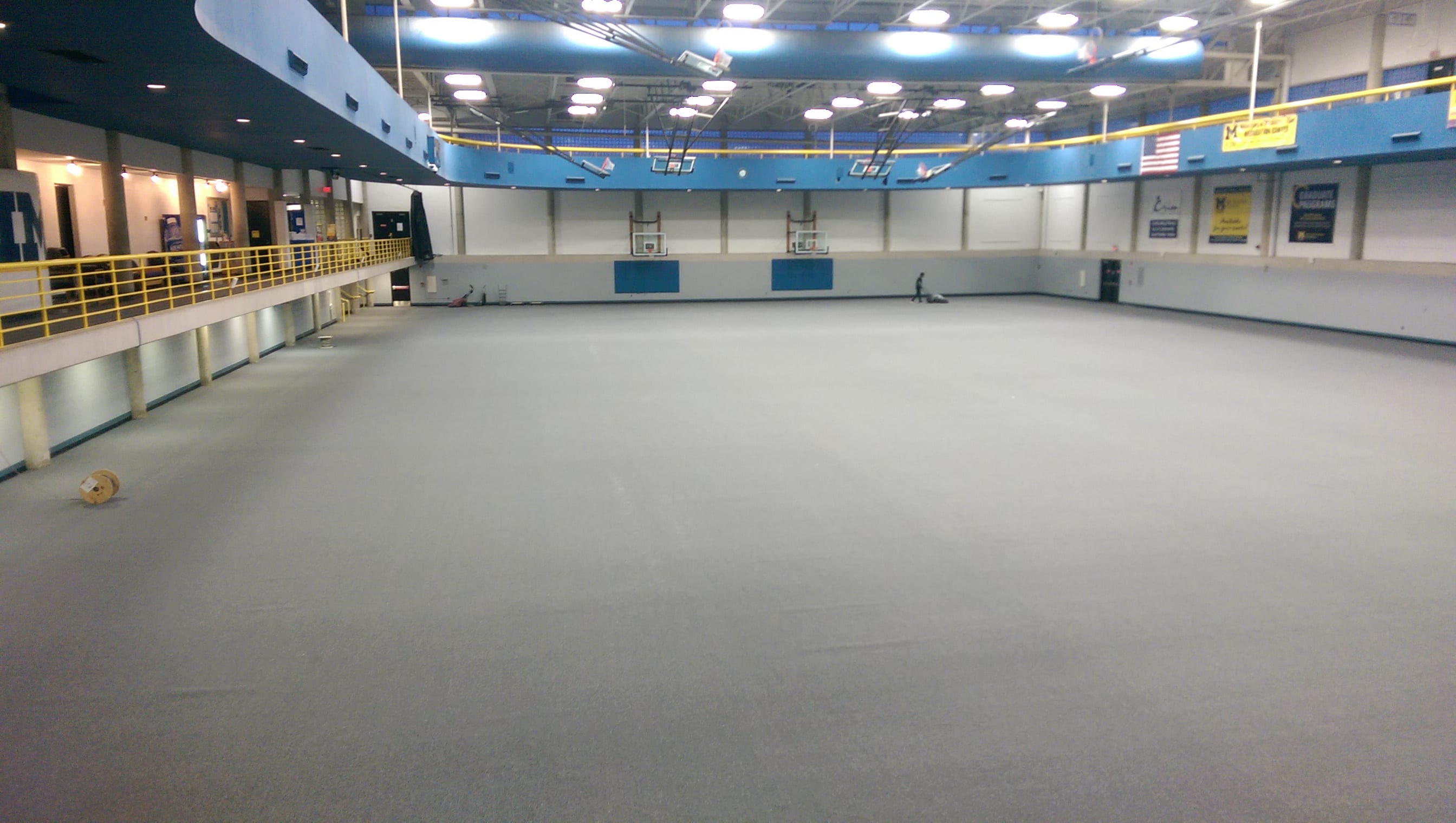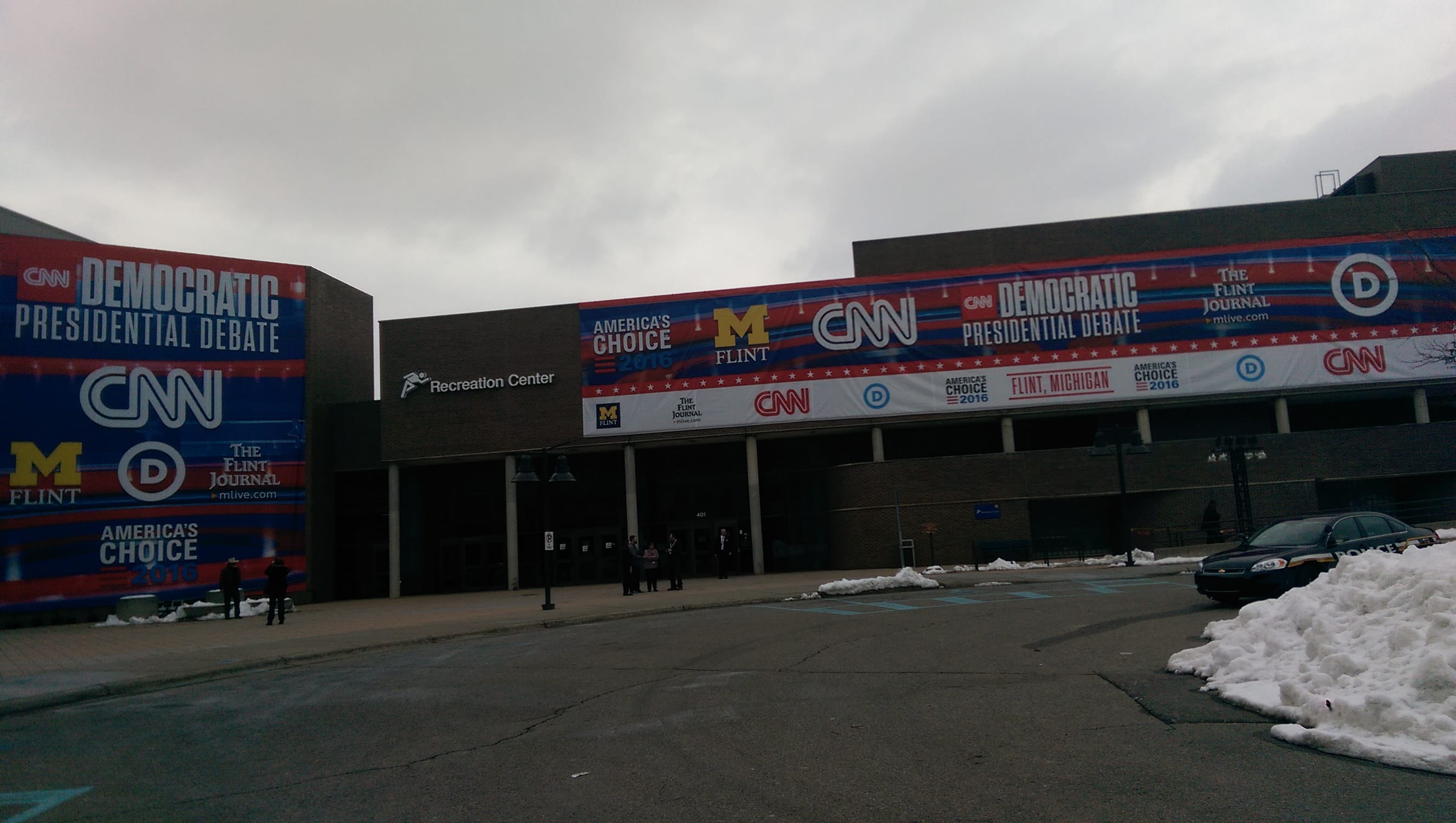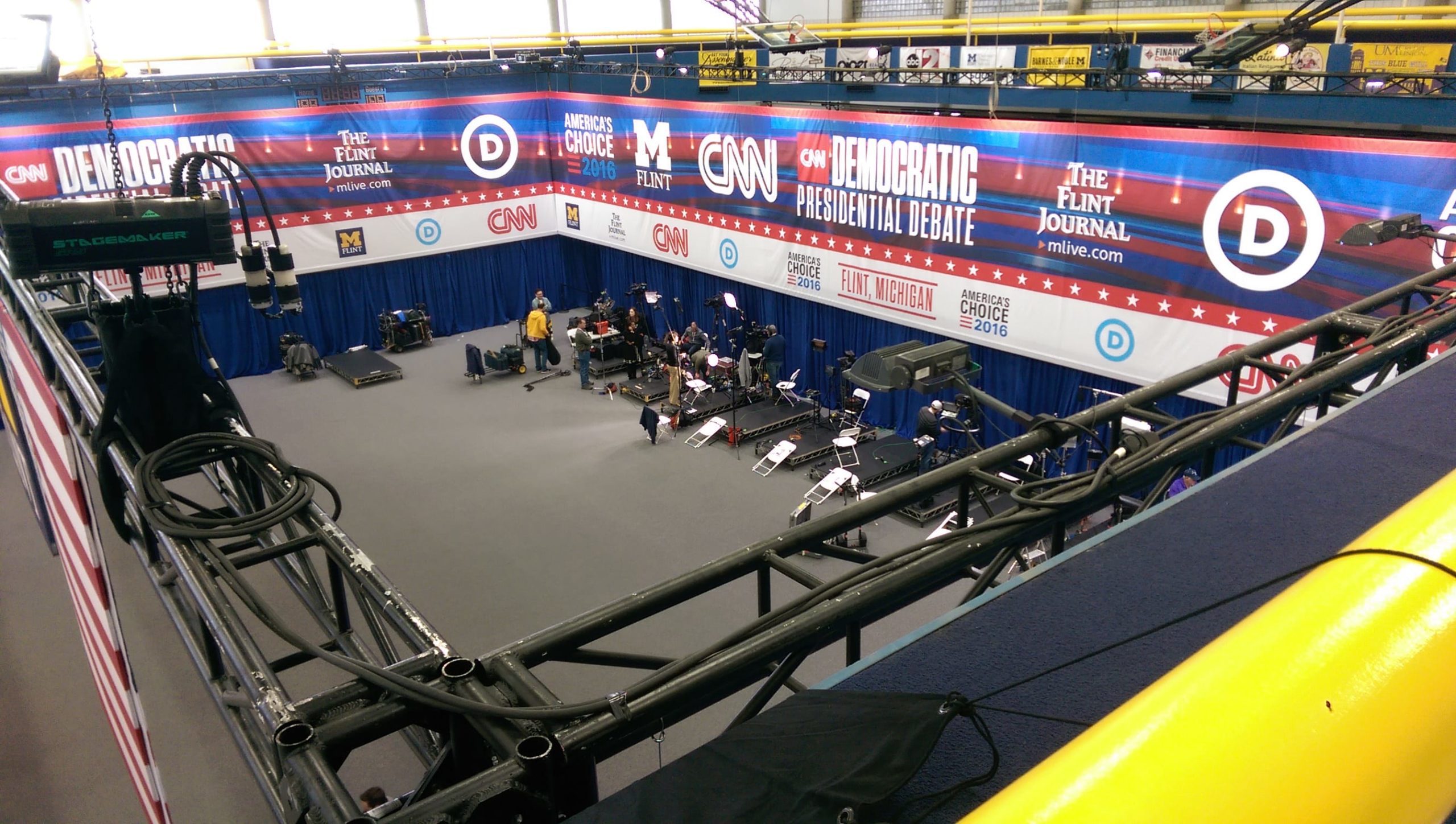On Sunday, March 6, 2016, the University of Michigan-Flint co-hosted a CNN Democratic Debate in their campus recreation facility. Though the space is typically used for intramural or pick up basketball games, the gym floor, which is actually three full-sized basketball courts, hosted candidates Bernie Sanders and Hilary Clinton, moderator Anderson Cooper and a “flock” of journalists.
“The gym floor was transformed to be able to host the 500 journalists who flocked to Flint to cover the presidential debate,” explained Theresa Landis, the director of recreational services at the university. “Just outside the Rec Center, the large parking lot was transformed into ‘media row,’ and filled with satellite trucks and live broadcasts during, before and after the debate. They also needed a number of smaller workrooms for organizers, candidate campaign staff and Party officials. The fact that the week leading up to the Debate was spring break for our students enabled us to accommodate such an involved, extensive event.”
Landis explained the opportunity to co-host the debate fell right into the mission of and vision of campus recreation: to change lives in a positive way. Even though this is typically done through fitness, the debate allowed them to change lives in a unique way, aside from their day-to-day operations.
But not all news surrounding Flint, Michigan has been positive. In April 2014, the state decided to save money by switching the city’s water supply from Lake Huron to the Flint River. The switch has since caused the water to become filled with lead and therefore undrinkable, which was a big topic at the debate.
The recreation facility at the University of Michigan-Flint became one of the first institutions in the area to respond. Landis said the recreation center hosted the first major water filter distribution, passing out approximately 3,000 bottles of water in one day. They also installed filters and conduct regular water testing for its students and community.
Much like the water response, setting up for the national debate took time. The university appointed a point person as a primary contact to CNN, and the media organization came and toured the facility less than a month prior to the debate.
Nets had to be removed and IT and electrical improvements were conducted immediately after the tours. “As you can imagine, things moved quickly and everyone involved put in long hours,” added Landis. “On the Saturday before the Debate, work started at 5 am and ended at midnight. University personnel returned at 4 am on Sunday, the day of the event, and worked until 1 am Monday.”
Additional students were temporarily hired to help stage the space inside the facility, which Landis said were great help. “When obstacles were presented, they worked together as a team to problem solve,” she said. “They performed long hours of manual labor, but they also brought leadership, initiative, time management, and effective communication skills and abilities to the project.”
The facility was shut down for a couple of days, but Landis said they received few complaints, as most were proud the rec center was a part of national interest. “This is a great opportunity for your students to be a part of a once-in-a-lifetime experience. Whether at the local community or national level, the role they play is making history. So do whatever it takes to get as many students involved as possible.”



